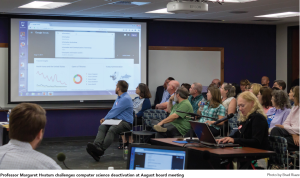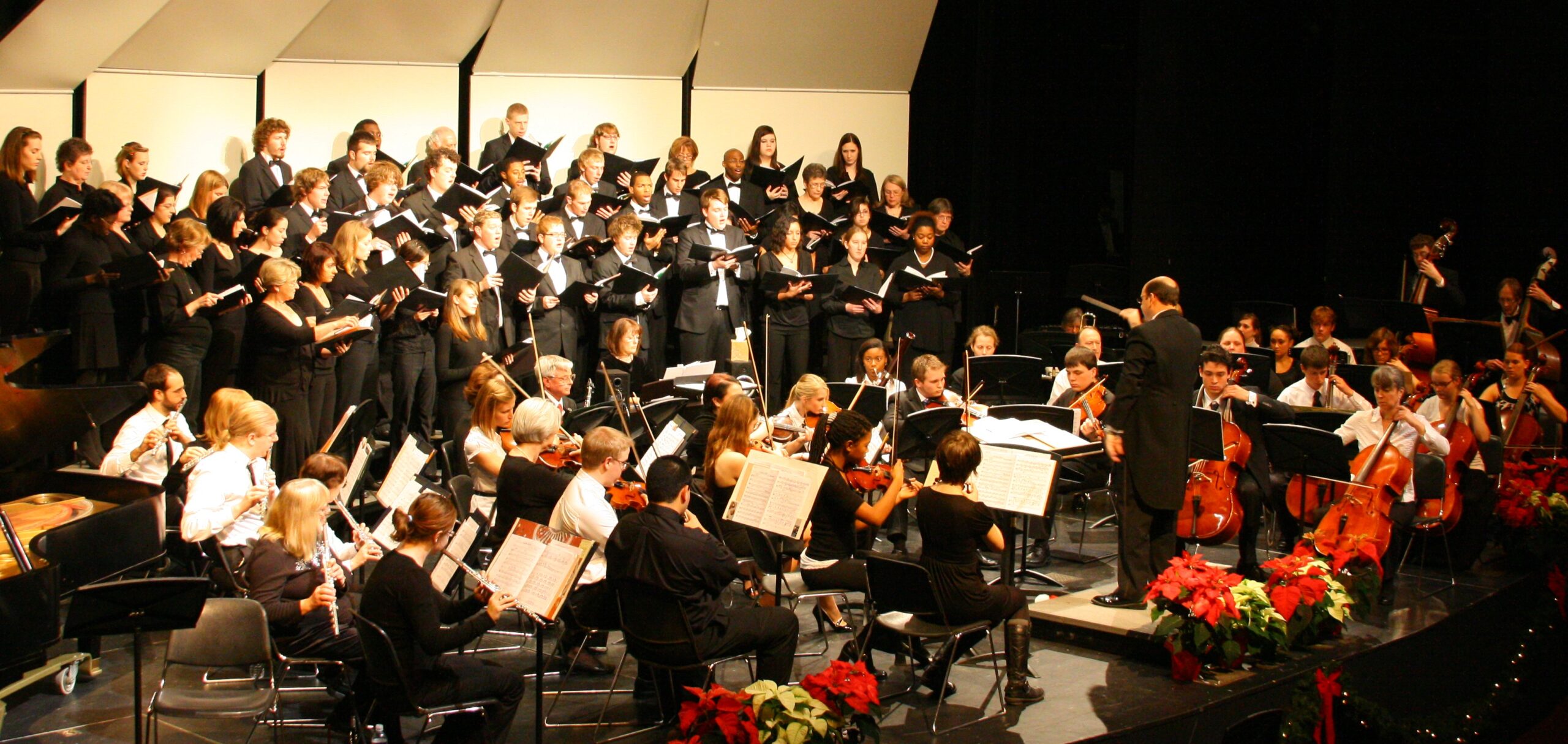Provost cites low graduation numbers flagged by MDHE
By: Melissa Wilkinson
Editor-in-Chief
In Fall 2016, the St. Louis Community College district had 264 students who declared majors in computer science. Despite this large number, the administration has decided it will no longer be offering the major.
Computer science is one of three majors offered on the Meramec campus that will be deactivated no later than December 1, 2017. Any student studying computer science, mass communications or art education will be permitted to graduate with their degree, but no new applicants will be considered. All classes necessary for the degrees will continue to be offered.
This change is due to a notice sent to STLCC by the Missouri Department of Higher Education, or MDHE.
“Unless there is sufficient justification for exceptions…programs shall maintain a critical mass of majors and graduate annually an average, calculated over the prior three years, of at least 10 graduates at the associate or baccalaureate degree level…” reads the notice.
In layman’s terms, this means that, unless a program graduates an average of 10 students in a particular major, the program cannot be offered. According to Meramec Provost Dr. Carol Lupardus, in the past three years, the district has graduated only five computer
science majors.
So why are there so many majors but so few graduates? Lupardus believes that, due to the school’s excellent instructors, students studying computer science quickly receive the credits they need in order to transfer to a four-year university and simply graduate elsewhere with a bachelor’s.
“It’s the [number of] graduates that become the red flag,” said Lupardus.
But Margaret Hvatum, professor of Information Systems at Meramec, disagrees.
“The reason for the low graduation rate was failure to keep [the program] updated,” said Hvatum. “At the beginning of 2017, [several faculty members] proposed a revision to the program which would reduce…credits required for graduation to what is the current norm, nationally. And the administration refused to let the program update proceed.”
For programs with low graduation rates, a red flag from the MDHE doesn’t necessarily mean deactivation. The district can provide justification for why an underperforming major should still be offered. Of the more than 20 programs flagged for potential deactivation, many are being petitioned for reasons including upcoming curriculum changes, reorganization and even relocation. This is not a guarantee that the programs will be salvaged; the MDHE must still review the requests and make a determination in late 2017.
In the case of computer science, however, the administrators have decided against requesting
an exemption.
“A lot of students are looking for computer science,” said Lupardus. “They’re just not looking for an AAS in computer science.”
Hvatum, however, argues that offering a computer science degree is a big draw to potential students.
“This is a program that appeals to a broad range of students,” said Hvatum. “Students come to us looking for a computer science degree. If we stop offering that, they will go elsewhere. And we need to keep our students.”
According to Hvatum, there is no equivalent to offering computer science as an associate’s degree, even if the classes are still being offered.
“If students complete the general transfer degree and then fail to graduate from college, their future lifetime income will be far less than if they complete the computer science degree and then fail to graduate from college,” said Hvatum. “In other words, you’re always better off with a bachelor’s but if you don’t end up getting one because life happens, the intermediate degree that you get should be as valuable
as possible.”
Hvatum, who plans to continue speaking out against the deactivation, maintains faith that, by updating the program, the district can easily raise graduation rates to those outlined by the MDHE.
“We just need to fix it,” said Hvatum. “ And we already know how.”











